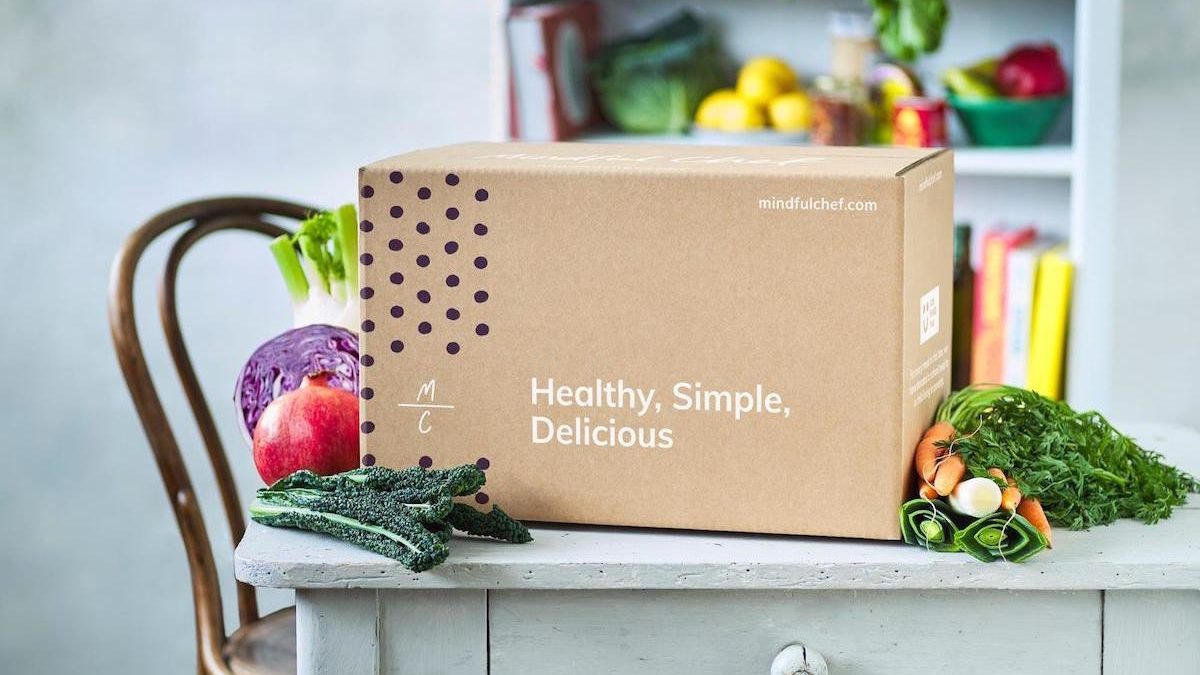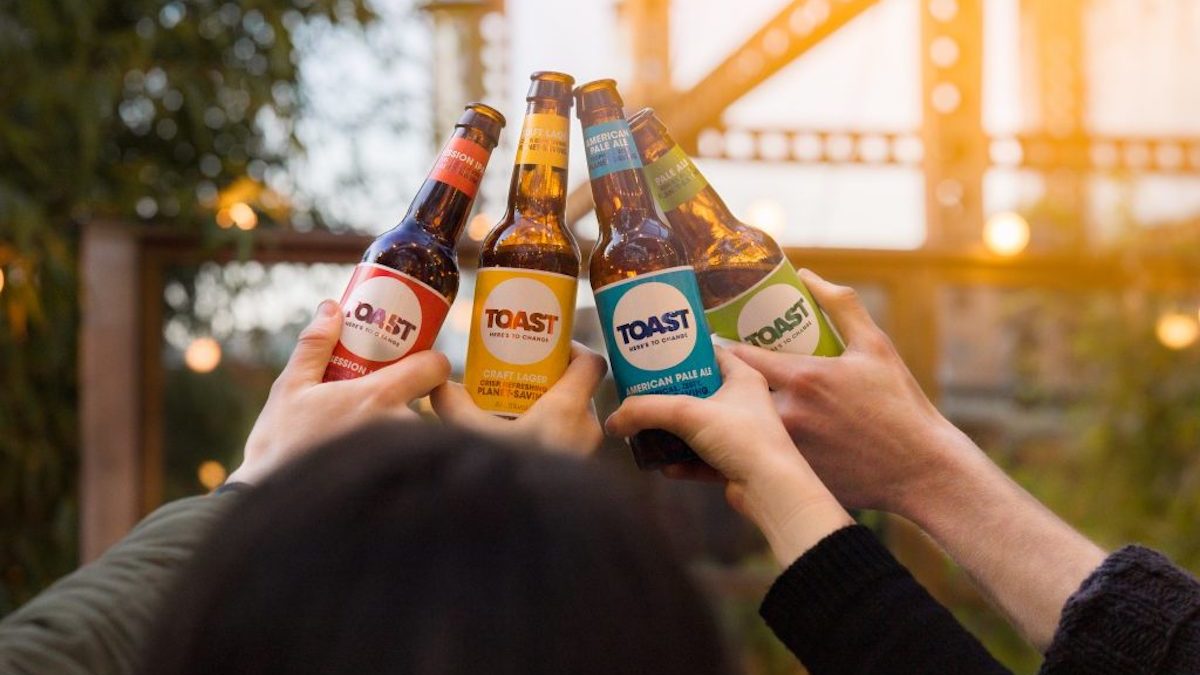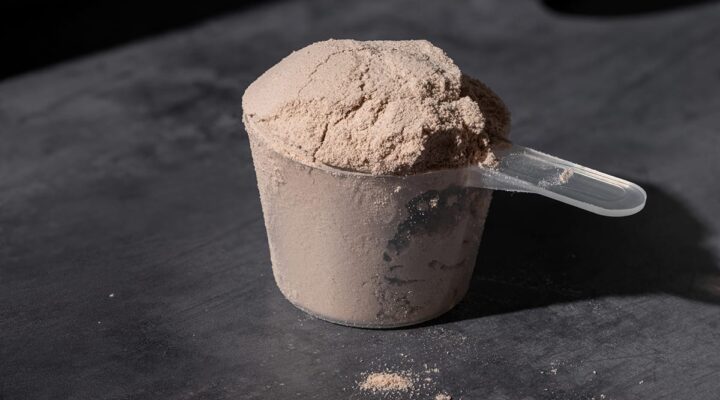How To Build A Brand With Purpose: Advice And Tips From B Corp Leaders

A brand with purpose is not a new phenomenon. Local businesses have long been driven by their impact on the community around them, from the greengrocer serving regulars down the market, to your newsagents on the corner commandeering the newspaper round. But as debate and widespread concerns over sustainability, environmentalism, discrimination, and mental health, have come to the fore, the societal impact a brand is making has become more important than ever.
This impact is best measured by the B Corp certification process, which highlights businesses that meet the highest standards of verified social and environmental performance, public transparency, and legal accountability to balance profit and purpose. To celebrate this month’s B Corp month, held to raise awareness of those brands making moves to find that balance, we spoke to leaders at B Corp businesses to gleam their top tips for building a brand with purpose.
Be Clear On Your Mission From The Start
“At Mindful Chef we set out to make healthy eating easy but we knew at our core that we wanted to be more than just a recipe box. Our name encompasses everything we strive to achieve — being mindful of our impact on wider society and the environment. If you can focus on your why and meaning at the beginning it will help guide you to make the right decisions as you grow.”
Myles Hopper, CCO and co-founder of Mindful Chef
Meaningful Change Takes Time
“Acknowledge that substantial changes don’t happen overnight and understand that incorporating giving and environmental sustainability into every framework is a more complex issue than discussed on social media.
“However, that does not mean that brands should be slow to act. Consumer appetite for eco-friendly products is fierce, and demand for transparency is a great motivation for traditional brands to rethink and re-structure practices to be less harmful to the environment and bring positive change for future generations.”
Natalia Bojanic, brand director and co-founder of Form

Mindful Chef
Adopt A ‘Big Company’ Mindset
“The temptation for startups is often to focus 100 percent on growth strategy and building the business as fast as possible. This can lead to corner-cutting when it comes to developing longer-term strategies for sustainability. Instead, startups should adopt the mindset of big companies when developing their plans to build a more sustainable business. Big firms often allocate more time to research, planning their approach and measuring the impact of their actions.
“This helps them ensure they are continually achieving their desired results over the long-term. It’s worth taking the time to rigorously assess where your startup business can make changes and become more sustainable, rather than making snap decisions which might have less of a positive impact in the long run.”
Lysander Bickham, CEO and founder of Leo’s Box
Infuse Your Brand With Values That You Are Passionate About
“My main advice is to infuse your products, your services and your entire brand with values that you are passionate about. What makes you tick? Is it equality and social justice, veganism and animal rights or organic food and the environment? As businesses, and especially as certified B Corporations, we have a certain duty towards our customers and society. The best way to effect change is to do what you believe will make the world a better, kinder, more compassionate place, and to do that in your own, unique way.”
Boris Zatezic, CEO and founder of MuLondon
Embed Your Purpose Within The Company Culture
“Invest in embedding your purpose in the culture of the organisation, with clearly articulated values that guide everything from your hiring process to customer services. This benefits decision-making at every level as the team has an instinctive feel for the ‘right’ direction, is more able to identify opportunities to progress further and faster, and helps to avoid action that’s inconsistent with your purpose, and potentially brand-damaging.”
Louisa Ziane, COO and co-founder of Toast Ale

Toast Ale
Spread The Word Throughout Your Supply Chain
“The purpose embedded in the business by our founder inspired us to take the step to become a B Corporation certified business. In order to spread the word, we are also encouraging our suppliers to become B Corporations themselves so we can guarantee the highest standards of ethics throughout our supply chain.
“As a member of the British Beauty Council I know that my industry has a long way to go; too many beauty products are still not recyclable or sustainable. All of our Aromatherapy Associates products now come in recyclable packaging and I am pushing for this along with clearer frameworks for making sustainability claims across the wider sector.”
Anna Teal, CEO of Aromatherapy Associates
Factor In The True Cost Of What You Do
“Firstly, you should have a goal with societal uplift, not company uplift. At DAME, we’re improving the world for women. Secondly, factor in the true cost of everything you do or make — to people and the planet — and mitigate these as much as possible. Does your product need to be made? Could it be made better? With less plastic? More renewable materials? Could supply chains be shorter? Could the people making it be treated better, or could the work go to those most in need?
“The earlier these things are thought about, the easier they are to implement. Retro-fitting purpose takes huge effort for the team, and sadly even more so to get past shareholders.”
Alec Mills, co-founder of DAME
Think About What Gets You Fired Up
“Think about what makes you angry in the world and then use your business to do something about it. For me, it is the horrific treatment of animals in factory farming that pushed me to start my first business, the meat-free restaurant ETHOS, in central London, and I continue this fight with LUXTRA.
“I want to show people that they don’t have to eat meat or wear leather, and LUXTRA focuses on driving change on that specific issue. Choosing one single issue that you really care about will mean that passion will propel you through the hard times, it will resonate far better with your customer, and it will keep you laser focused, helping to prevent you doing 10 things each at 10 percent rather than one thing at 100 percent.”
Jessica Kruger, founder of LUXTRA

LUXTRA
Don’t Cut Corners
“Growing a purposeful brand means setting higher standards and having clearer boundaries – it’s often the case that business cut corners to save money, or choose less environmentally friendly options because it’s quicker. But these decisions come at a cost to the planet and people elsewhere. Brands with purpose don’t compromise, instead they go the extra mile to innovate and protect.”
Ed Bird, founder of Bird Eyewear
Define Your Purpose And Give Yourself A Framework
“For us at Freestar, the most important part of growing a brand with purpose is to define the bigger reason for your existence beyond profit, your ‘why?’, as early as possible and make it a cornerstone of your business. This can take the form of a mission statement but more importantly it must be meaningful, measurable and authentic, and quite fundamental to the way you run your business. Attempting to retrofit the company and tack on sustainability initiatives often comes across as inauthentic or virtue signalling.
“The B corp framework, which we at Freestar have used and committed to since before we even sold a bottle, is a great way to assess how to run a holistically sustainable and ethical business, but to also really be a purpose driven company, one needs to have a mission beyond profit. The second part requires a bit of soul searching.”
Charlie Crawley, co-founder of Freestar
Search For Greener Alternatives
“The Cheeky Panda uses bamboo, the world’s fastest growing plant, in all of their products, which means sustainability has always been at the core of the brand. We wanted to demonstrate that you can create high-quality, greener alternatives to traditional products that don’t cost the earth.
“Being a B-Corp is all about doing the right thing for the right reasons, and it’s inspiring to have a community of mission-driven brands aiming to make the environment and society a better place, while inspiring a new generation. This, we believe, is how things should be done going forward. If we can do this successfully, humanity and the world we live in will have a long and prosperous future.”
Chris Forbes, co-founder of The Cheeky Panda
Want to find out more about Form’s B Corp status? Read our interview with Form founders Natalia Bojanic and Damian Soong here, where they explain why Form became a certified B Corporation.


















